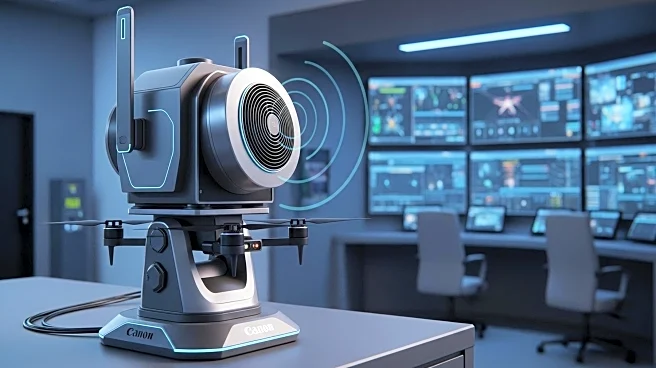What's Happening?
NATO is grappling with the challenge of countering Russia's increasing use of drones, which are being deployed into NATO airspace. Polish authorities recently recovered fragments of Gerbera drones, believed to be used as decoys, costing around $10,000 each. In response, NATO scrambled multimillion-dollar F-16 and F-35 fighter jets, highlighting a significant cost asymmetry in defense strategies. Experts argue that while NATO can counter large-scale drone attacks, the financial burden of such defenses is unsustainable. The defense tech sector is pushing for faster adaptation to drone threats, with companies like MARSS and Tekever developing advanced interceptor drones and surveillance systems. However, NATO's procurement systems are criticized for being outdated, slowing the adoption of new technologies.
Why It's Important?
The growing drone threat from Russia poses significant strategic and financial challenges for NATO. The cost asymmetry between inexpensive drones and expensive defense systems could strain NATO's resources, impacting its long-term defense capabilities. The situation underscores the need for NATO to innovate and adapt quickly to asymmetric threats, which could influence defense policies and procurement processes. The ability to effectively counter drone threats is crucial for maintaining security in Europe and preventing potential escalations in conflict. The defense tech industry's push for faster innovation could lead to advancements in military technology, benefiting NATO's overall defense strategy.
What's Next?
NATO is expected to evaluate new technologies, such as MARSS's AI-enabled interceptor drones, to enhance its defense capabilities against drone threats. The procurement process may undergo reforms to speed up the adoption of innovative technologies. The ongoing conflict in Ukraine serves as a testing ground for new defense strategies, potentially influencing NATO's approach to drone warfare. European countries may increase collaboration with defense tech companies to develop cost-effective solutions. The situation could lead to increased investment in drone and counter-drone technologies, shaping the future of military defense strategies.
Beyond the Headlines
The ethical implications of drone warfare, including civilian safety and privacy concerns, may become more prominent as drone technology advances. The reliance on drones and counter-drone systems could shift military strategies, emphasizing technological superiority over traditional methods. The geopolitical landscape may be affected as countries invest in drone technology, potentially altering power dynamics and alliances. The environmental impact of increased drone production and deployment may also be considered, prompting discussions on sustainable military practices.









